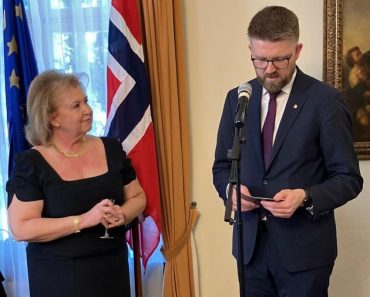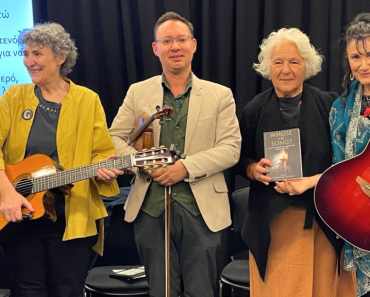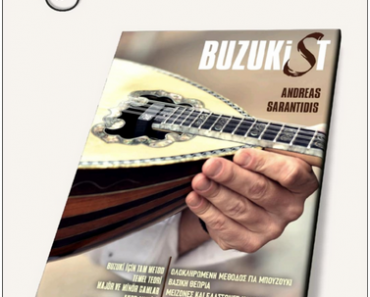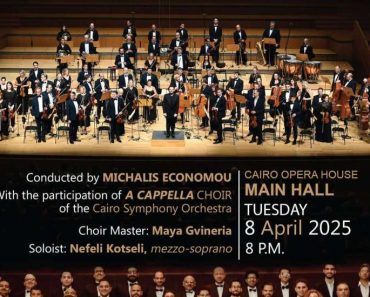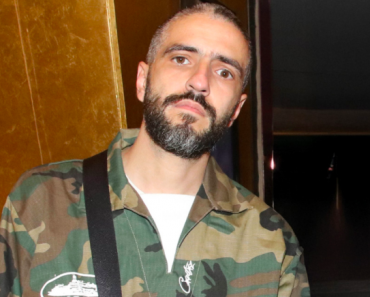Orthodox Observer/ Dr. Claire Koen
This week the Orthodox Observer’s Dr. Claire Koen sat down with American Idol finalist Amanda Barise to talk about the intersection of her music and her Orthodox faith.
Claire: Can you tell me a little bit about how you discovered your musical talent?
Amanda: Sure! So, music and singing for me have always felt like a faucet that can’t be turned off. It felt, not like a second language, but my primary language. I started singing at a very young age, and it was always something that just clicked for me. I never had to force it. Rhythm, pitch, and emotional expression through whatever song it may be always came very naturally. And over time, I realized that it wasn’t just something I was good at: it was a core part of who I am.
Singing became my outlet. It became my therapy. It became my way of processing the world, and eventually, it became my purpose. I kept refining my craft and went on to study it seriously at the New School in New York City. And I have never stopped being a student of sound, and of storytelling, and of music.
I will forever be a student. I seek out new jazz solos to learn. I love alternative R&B, alternative jazz, and traditional jazz. I’m a big fan of Ella Fitzgerald: I love studying her music! One of the earliest moments that I think back to was a little local talent showcase in New Jersey, not far from the Greek Orthodox church that I grew up in. The church was in Tenafly, and this showcase was at the Cresskill High School. I got up and I sang a Frank Sinatra song at five or six years old. Aretha Franklin’s bass player was in the audience and he found my parents after and really encouraged them to put me in vocal lessons and to take this interest seriously: he thought that I showed abilities at a young age that aren’t common. I’m really glad and thankful that my parents took his advice and put me in lessons.
Claire: What a beautiful story! How does your music interact, and overlap with your Orthodox faith, your Orthodox identity?
Amanda: There’s a lot of overlap. I feel there’s a very deep spiritual core to both music and faith. I think that’s where the overlap lies for me. My Orthodox faith, it grounds me. It gives me structure. It gives me discipline and a strong sense of identity.
Music, especially jazz music, alternative R&B, soul music, demands the same presence and authenticity that Orthodoxy does. And whether I’m singing in a room full of people or alone in my apartment, I know that what I am creating, it carries intention, and it’s not possible without God. To give you a visual, I don’t know if you have ever seen the movie Soul–it’s a kid’s movie—there’s a scene where the keyboard player is transported to the beyond: it’s like you leave Earth, and you’re connecting with a higher power that you have no control over. It’s speaking through me. God is speaking through me. And the talents that I have that I was given are not mine. It’s my job to share them. I believe that my faith comes out when I share it, and my faith has taught me to treat my musical gift with reverence: it’s a responsibility as much as it is a talent.
I’m very mindful of the energy that I bring to my art. I want it to be positive always. I want it to help others, and I think that that care and that intention comes through everything that I do.
Claire: I’d like to have a whole other conversation with you about Orthodoxy and Jazz!
Amanda: That would be an awesome conversation! I really think that out of any genre, there is more connection with those two. I could talk about it forever.
Claire: What advice would you give to young Orthodox girls, and young women, who see your success, see what you’re doing, and think, “I want to be her when I grow up”?
Amanda: I love this question. I mean, where do I start? First of all, I want them to know that it’s possible. Whatever it is that they’re seeing, and they’re questioning “could I do it?” “Is it for me?” It’s possible. You don’t have to choose between being devoted to your faith and pursuing your passion. There’s room for both. And even if it doesn’t always look like a traditional path, don’t be afraid of following it if that’s where your heart and your desires are leading you, because that’s not you making that decision. That’s a higher power making that decision for you.
And my advice would be to always lean into who you are, not away from who you are, even though the world and the music industry is going to tell you everything that you can’t be. You don’t need to compromise your values to be seen or heard. I’m not an artist that goes on stage and does anything provocatively. I’m not an artist that dresses in a way that is exploiting my body. I’ve never been like that, and I will never be like that. In fact, staying rooted to your values and not compromising on who you are will set you apart. Because when you come out to California, you know, and you see who does compromise on their values, you start to see, okay, these 40 people at this party are exactly the same, and I’m the only one sticking out like a sore thumb because I’m sticking to my values.
Surround yourself with people who respect your talents and your beliefs. I share a dressing room with a wonderful, wonderful, Christian woman–a mother and a singer. She’s not Greek Orthodox, but she’s a devout Christian. And we’ve had many discussions in our dressing room about what it means to be a Christian and what it means to be a woman doing this. What I say to her and what I say to the young women that you had asked me about in this original question, who see my success and want to emulate that path: don’t be afraid to take up space. I don’t believe that God wants us to minimize ourselves. It’s our uniqueness and that uniqueness with our faith that is our power.
Photos courtesy of Amanda Barise.


